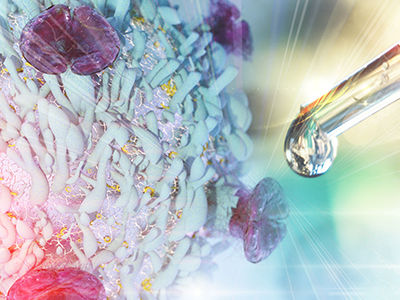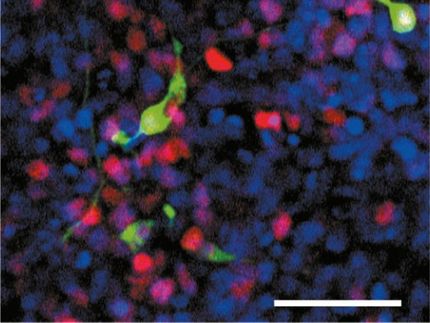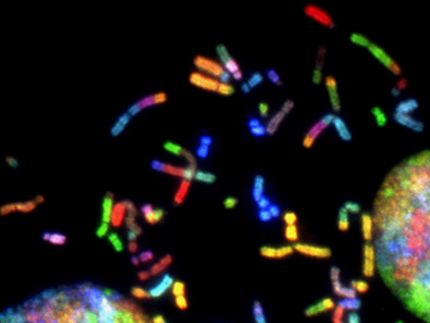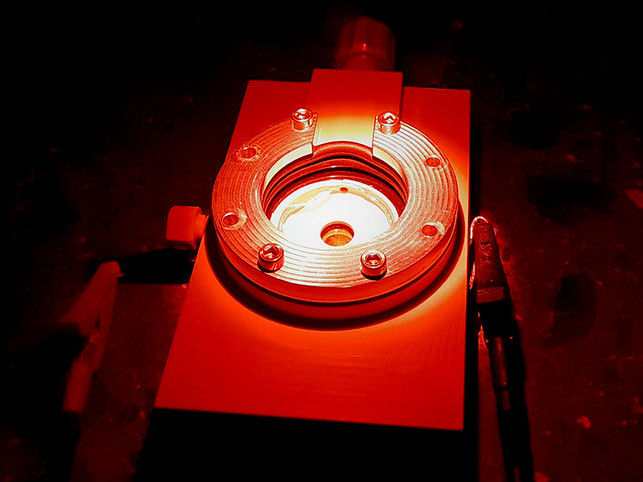New understanding of cell stability with potential to improve immune cell therapies
Findings highlight pathway to remove unstable cells
Research in mice, published in Science Immunology by researchers at the Babraham Institute, UK and VIB-KU Leuven, Belgium, provides two solutions with potential to overcome a key clinical limitation of immune cell therapies. Regulatory T cells have potential in treating autoimmunity and inflammatory diseases yet they can switch from a protective to damaging function. By identifying the unstable regulatory T cells, and understanding how they can be purged from a cell population, the authors highlight a path forward for regulatory T cell transfer therapy.

New understanding of cell stability with potential to improve immune cell therapies
Babraham Institute
Cell therapy is based on purifying cells from a patient, growing them up in cell culture to improve their properties, and then reinfusing them into the patient. Professor Adrian Liston, Immunology group leader at the Babraham Institute, explained their therapeutic potential: "The leading use of cell therapy is to improve T cells so that they can attack and kill a patient's cancer, however the incredible versatility of the immune system means that, in principle, we could treat almost any immune disorder with the right cell type. Regulatory T cells are particularly promising, with their ability to shut down autoimmune disease, inflammatory disease and transplantation rejection. A key limitation in their clinical use, however, comes from the instability of regulatory T cells - we just can't use them in cell therapy until we make ensure that they stay protective".
T cells come in a large variety of types, each with unique functions in our immune system. "While most T cells are inflammatory, ready to attack pathogens or infected cells, regulatory T cells are potent anti-inflammatory mediators", Professor Susan Schlenner, University of Leuven, explains. "Unfortunately this cell type is not entirely stable, and sometimes regulatory T cells convert into inflammatory cells, called effector T cells. Crucially, the converted cells inherit both inflammatory behaviour and the ability to identify our own cells, and so pose a significant risk of damage to the system they are meant to protect."
The first key finding of this research shows that once regulatory T cells switch to becoming inflammatory, they are resistant to returning to their useful former state. Therefore, scientists need to find a way to remove the risky cells from any therapeutic cell populations, leaving behind the stable regulatory T cells.
By comparing stable and unstable cells the researchers identified molecular markers that indicate which cells are at risk of switching from regulatory to inflammatory. These markers can be used to purify cell populations before they are used as a treatment.
In addition to this method of cell purification, the researchers found that exposing regulatory T cells to a destabilising environment purges the unstable cells from the mixture. Under these conditions, the unstable cells are triggered to convert into inflammatory cells, allowing the researchers to purify the stable cells that are left. "The work needs to be translated into human cell therapies, but it suggests that we might be best off treating the cells mean", says Professor Adrian Liston. "Currently, cell culture conditions for cell therapy aim to keep all the cells in optimal conditions, which may actually be masking the unstable cells. By treating the cultures rougher, we may be able to identify and eliminate the unstable cells and create a safer mix of cells for therapeutic transfer."
Dr Steffie Junius, lead author on the paper who undertook the research as a PhD student at the University of Leuven, commented: "The next stage in the research is to take the lessons learned in mice and translate them into optimal protocols for patients. I hope that our research contributes to the improved design and allows the development of effective regulatory T cell therapy."
Establishing a thorough process to improve cell population stability in mice helps to lay the groundwork for improved immune cell therapies in humans, although the methods described in this work would require validation in humans before they were used in cell therapy trials. Dr Timothy Newton, CEO of Reflection Therapeutics, a Babraham Research Campus-based company designing cell therapies against neuro-inflammation, who was not involved in this study, commented on the translational potential of the study: "This research makes a significant impact on regulatory T cell therapeutic development by characterising unstable subsets of regulatory T cells that are likely to lose their desirable therapeutic qualities and become pro-inflammatory. The successful identification of these cells is of great importance when designing manufacturing strategies required to turn potential T cell therapeutics into practical treatments for patients of a wide range of inflammatory disorders."


























































